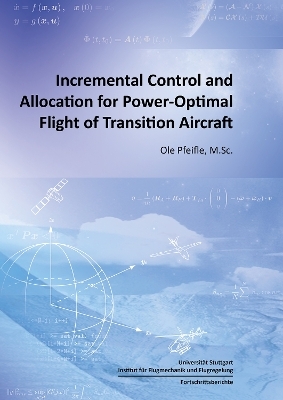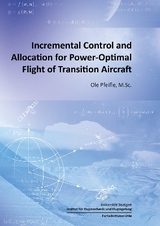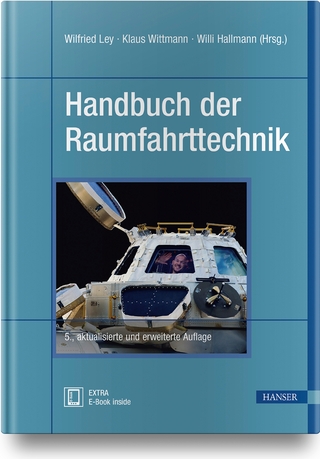Incremental Control and Allocation for Power-Optimal Flight of Transition Aircraft
Seiten
Recent developments in electric motor and battery technology have enabled the design of new aircraft configurations that exploit the inherent advantages of an electrified powertrain. Low complexity and maintenance cost as well as benign scaling properties of electric motors facilitate an increasing degree of over-actuation.
The resulting, increasingly complex aircraft configurations, however, require sophisticated flight control systems to guarantee stability over a wide flight envelope and to make efficient use of all available actuators.
This thesis addresses a number of specific challenges for the control of overactuated transition aircraft. Due to their large flight envelope and often complex actuator layouts with aero-propulsive interactions, their aerodynamics are generally complex to model accurately. An incremental, nonlinear control approach is therefore chosen and extended that provides both global stability and good robustness with respect to model uncertainties.
The problem of constrained control allocation is subsequently addressed by proposing an allocation scheme that uses the additional degrees of freedom to directly minimize the total power required. Finally, an incremental control and allocation framework for transition aircraft is proposed, that uses the minimum power control allocation to naturally solve the trade-off between using aerodynamic lift and vertical thrust by including incremental attitude commands as virtual inputs in the minimum power control allocation. The resulting control allocation scheme allows to both maximize control authority and find minimum power trim solutions. Flight tests are performed that showcase the minimum power trim and control allocation without the use of flight mode switching or blending functions.
The resulting, increasingly complex aircraft configurations, however, require sophisticated flight control systems to guarantee stability over a wide flight envelope and to make efficient use of all available actuators.
This thesis addresses a number of specific challenges for the control of overactuated transition aircraft. Due to their large flight envelope and often complex actuator layouts with aero-propulsive interactions, their aerodynamics are generally complex to model accurately. An incremental, nonlinear control approach is therefore chosen and extended that provides both global stability and good robustness with respect to model uncertainties.
The problem of constrained control allocation is subsequently addressed by proposing an allocation scheme that uses the additional degrees of freedom to directly minimize the total power required. Finally, an incremental control and allocation framework for transition aircraft is proposed, that uses the minimum power control allocation to naturally solve the trade-off between using aerodynamic lift and vertical thrust by including incremental attitude commands as virtual inputs in the minimum power control allocation. The resulting control allocation scheme allows to both maximize control authority and find minimum power trim solutions. Flight tests are performed that showcase the minimum power trim and control allocation without the use of flight mode switching or blending functions.
| Erscheinungsdatum | 18.06.2024 |
|---|---|
| Reihe/Serie | Fortschrittsberichte des Instituts für Flugmechanik und Flugregelung ; 18 |
| Verlagsort | Düren |
| Sprache | englisch |
| Maße | 170 x 240 mm |
| Gewicht | 282 g |
| Themenwelt | Technik ► Luft- / Raumfahrttechnik |
| Schlagworte | Control Allocation • eVTOL • Incremental Control • Nonlinear Control |
| ISBN-10 | 3-8440-9496-2 / 3844094962 |
| ISBN-13 | 978-3-8440-9496-1 / 9783844094961 |
| Zustand | Neuware |
| Haben Sie eine Frage zum Produkt? |
Mehr entdecken
aus dem Bereich
aus dem Bereich
Grundlagen, Mathematik, Kartenkunde, leistungsbasierte Navigation
Buch | Softcover (2022)
De Gruyter Oldenbourg (Verlag)
72,95 €
Das aktuelle Raumfahrt-Jahrbuch mit allen Starts
Buch | Softcover (2022)
Verein zur Förderung der Raumfahrt e.V. (Verlag)
18,90 €




